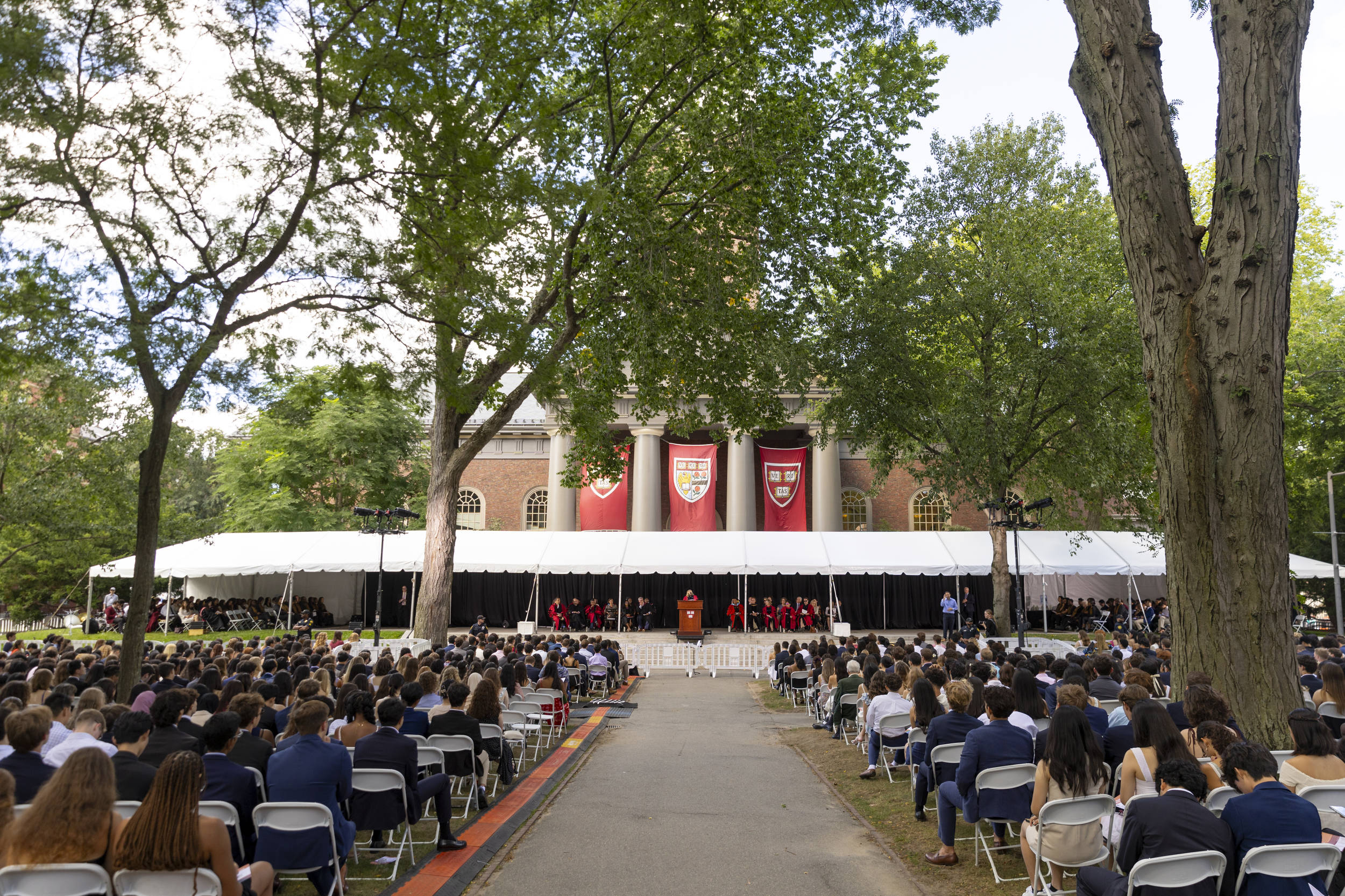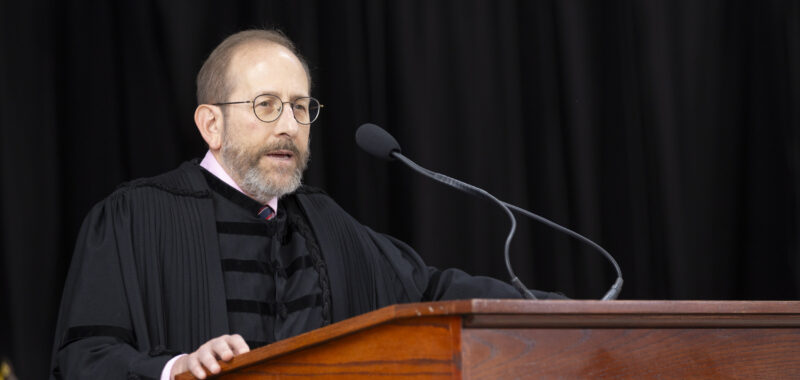Harvard President Alan Garber on Monday welcomed the Class of 2028 with a prediction: You won’t always get along. This reality, he said, is an inevitable part of joining a community that strives for excellence through the embrace of pluralism.
“We stand for growing in knowledge and wisdom — not only through intellectual and extracurricular pursuits but through everyday interactions, through disagreement and argument, through conflict and reconciliation,” Garber ’76 told students during Convocation, the annual welcome of College first-years, at Tercentenary Theatre. “You will learn at least as much from each other as you will learn from anyone else at Harvard — and you will learn more from difficult moments of tension than from easy moments of understanding. Be prepared to defend your point of view. Be prepared to articulate points of view that are different from your own. Be prepared, most of all, to change your mind.”

An economist, physician, and expert on health policy, Garber was named Harvard’s 31st president last month after serving as interim leader since January. In his first Convocation address, he made a forceful case for viewpoint diversity as one of the University’s core aims — and strengths.
“We stand for seeking, supporting, and sustaining excellence from as broad and as diverse a pool of talent as possible,” he said. “That is the beauty of the University. It attracts and supports interesting and ambitious individuals with different experiences and perspectives, individuals who challenge one another by virtue of being together in community. We acknowledge and celebrate that beauty — and the beauty of pluralism — with our willingness to encounter beliefs that are not our own, to be curious and respectful, to be genuinely attentive despite our tendency to be pulled in a million directions at once.”
Garber also reminded students to respect the opinions of others and to welcome and acknowledge one another as part of the community. Last year, the University, like many schools across the nation, was shaken by conflict and protests around the Israel-Hamas war.
“Being in this environment — in this community — means having rights and responsibilities,” Garber said. “Those gathered here have the right to express themselves freely — to dissent and protest. But they also have the responsibility to act with each of you — and the meaning of this occasion — in mind. We are convened to welcome you. Each of you should leave this gathering knowing that you’re acknowledged and accepted by our community.”
In his closing remarks, Garber encouraged first-years to learn from one another and to invest in building lifelong friendships.
“I still keep in touch with people I met during my first week on campus,” he said. “Much has changed since I moved into Claverly Hall in 1973, but there is one characteristic of Harvard people that has always stood out to me — and stands the test of time. We stand for excellence. We embrace ‘both/and’ rather than ‘either/or.’
“What do I mean by that?” he continued. “Here, you will often encounter individuals who don’t accept the notion that they can only do one thing really well. You can be both a mathematician and a competitive cyclist, both a folklorist and a committed journalist, both an engineer and a graceful dancer. Combinations and permutations too numerous to mention often lead to improbable and truly stunning successes — and testaments to what can be accomplished in a single lifetime.”
Other Harvard leaders joined Garber in welcoming the Class of 2028.
The Rev. Matthew Ichihashi Potts, Plummer Professor of Christian Morals at the Divinity School and Pusey Minister in the Memorial Church, delivered an invocation. Danoff Dean of Harvard College Rakesh Khurana offered the College Address, and Amanda Claybaugh, dean of undergraduate education, delivered the Academic Address. Thomas Dunne, dean of students at Harvard College, and Harvard Undergraduate Association co-presidents Ashley Adirika ’26 and Jonathan Haileselassie ’26 also took part in the ceremony.
Source link

